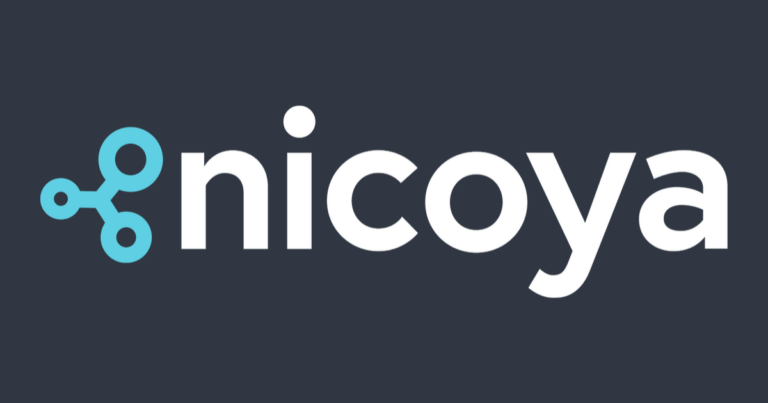Charles River Laboratories International, Inc. and Toxys have announced a strategic collaboration to expand access to ReproTracker®, a cutting-edge, human stem cell-based in vitro assay designed to identify developmental toxicity hazards in pharmaceuticals and chemicals. The partnership aims to accelerate the adoption and validation of New Approach Methodologies (NAMs) in toxicology, supporting a global shift toward safer, faster, and more ethical drug and chemical testing.
Transforming Developmental Toxicity Testing with ReproTracker
ReproTracker® represents a significant innovation in developmental and reproductive toxicology (DART) research. Developed by Toxys, the assay enables rapid, reliable detection of compounds that may interfere with early embryonic development. By using human induced pluripotent stem cells (hiPSCs) that differentiate into the three germ layers — ectoderm, mesoderm, and endoderm — ReproTracker provides a quantitative prediction of teratogenic potential, offering mechanistic insight into how compounds might affect human development.
This in vitro platform is capable of screening large numbers of compounds at an early stage, serving multiple purposes:
- As an early-phase developmental toxicity screening tool during pharmaceutical or chemical development.
- As an animal-free alternative to traditional teratogenicity testing.
- As a bridge between animal and human data, helping to interpret in vivo results and improve human relevance.
By incorporating ReproTracker into its portfolio, Charles River now offers clients access to one of the most advanced NAMs currently available for assessing developmental toxicity risks.
A Step Forward for DART Studies
Developmental and reproductive toxicology studies are essential in evaluating whether a substance could cause harm during pregnancy or affect reproductive function. Traditionally, these studies rely heavily on animal models, which, while informative, are often time-consuming, costly, and limited in their ability to predict human-specific outcomes.
ReproTracker complements these traditional methods by using human biology-based approaches that can more accurately mirror embryonic development in people. This dual capability — to both refine animal use and improve human relevance — is at the heart of Charles River’s and Toxys’s shared vision for the future of toxicology.
“ReproTracker is a one-of-a-kind in vitro solution to enable safe and effective developmental toxicity testing,” said Elise Lewis, PhD, ATS, Principal Director and Global Lead of DART (Pharmaceuticals) at Charles River. “DART is a critical step in the nonclinical phase of drug and chemical development, and we are pleased to offer our clients access to a tool that can help ensure the safety of patients and consumers.”
Amer Jamalpoor, Chief Scientific Officer at Toxys, added, “Our collaboration with Charles River enables us to accelerate the adoption of ReproTracker and strengthen its validation as a valuable non-animal alternative to classical in vivo approaches for DART.”
Expanding the Use of New Approach Methodologies (NAMs)
The collaboration between Charles River and Toxys aligns with a growing industry commitment to implementing NAMs, which use human cell models, computational tools, and molecular techniques to assess chemical safety without animal testing. NAMs are increasingly supported by global regulatory agencies as viable alternatives that maintain scientific rigor while promoting the 3Rs principle — Replacement, Reduction, and Refinement of animal use in research.
Charles River’s integration of ReproTracker builds on its Alternative Methods Advancement Project™ (AMAP™), an initiative dedicated to expanding the use of innovative, non-animal technologies across its service portfolio. AMAP’s objective is to help clients make informed safety assessments while embracing approaches that are both scientifically advanced and ethically responsible.
“The addition of ReproTracker reinforces Charles River’s dedication to innovation and our ongoing support of alternative testing strategies,” said Lewis. “We’re proud to partner with Toxys to bring a validated, high-quality NAM solution directly to our clients and the wider toxicology community.”
Comprehensive Toxicology Capabilities
This collaboration further strengthens Charles River’s robust DART offerings, which encompass a wide range of industries and product types, including:
- Pharmaceuticals and biopharmaceuticals (small molecules, biologics, vaccines)
- Veterinary medicines and medical devices
- Agrochemicals and industrial chemicals
- Food additives and consumer products
The company’s extensive historical control database and experienced scientific staff provide clients with detailed comparative data to interpret study findings and inform regulatory submissions. By integrating ReproTracker into this framework, Charles River can now offer an even broader suite of developmental toxicity assessment tools — ranging from traditional in vivo studies to advanced in vitro and computational NAMs.
ReproTracker: How It Works
ReproTracker’s approach is based on the concept that developmental toxicity can be predicted by monitoring how stem cells differentiate under exposure to test compounds. By tracking gene expression changes across key developmental pathways, the assay identifies compounds that disrupt normal cellular differentiation — a hallmark of teratogenic potential.
This mechanistic, data-rich platform not only flags potential hazards but also provides insights into the molecular mechanisms of toxicity, which can guide medicinal chemistry optimization and risk assessment strategies.
The platform’s ability to deliver reproducible, quantitative data in a short timeframe makes it particularly valuable for early-stage screening in pharmaceutical pipelines, where developers need to eliminate unsafe candidates quickly and efficiently. It also provides utility in chemical risk assessment, helping regulatory bodies and manufacturers make evidence-based safety decisions.
A Shared Vision for Safer, Ethical Science
By joining forces, Charles River and Toxys are advancing a common goal: to modernize toxicology through scientific innovation, human-relevant testing, and ethical responsibility. The collaboration not only accelerates the validation of ReproTracker but also represents a broader shift in how the life sciences community approaches safety testing.
As NAMs continue to gain global momentum, partnerships like this one are crucial for bridging the gap between cutting-edge research and real-world regulatory adoption.
“Together with Toxys, we’re paving the way for a future where drug and chemical safety testing is faster, more predictive, and less dependent on animal models,” Lewis concluded.



